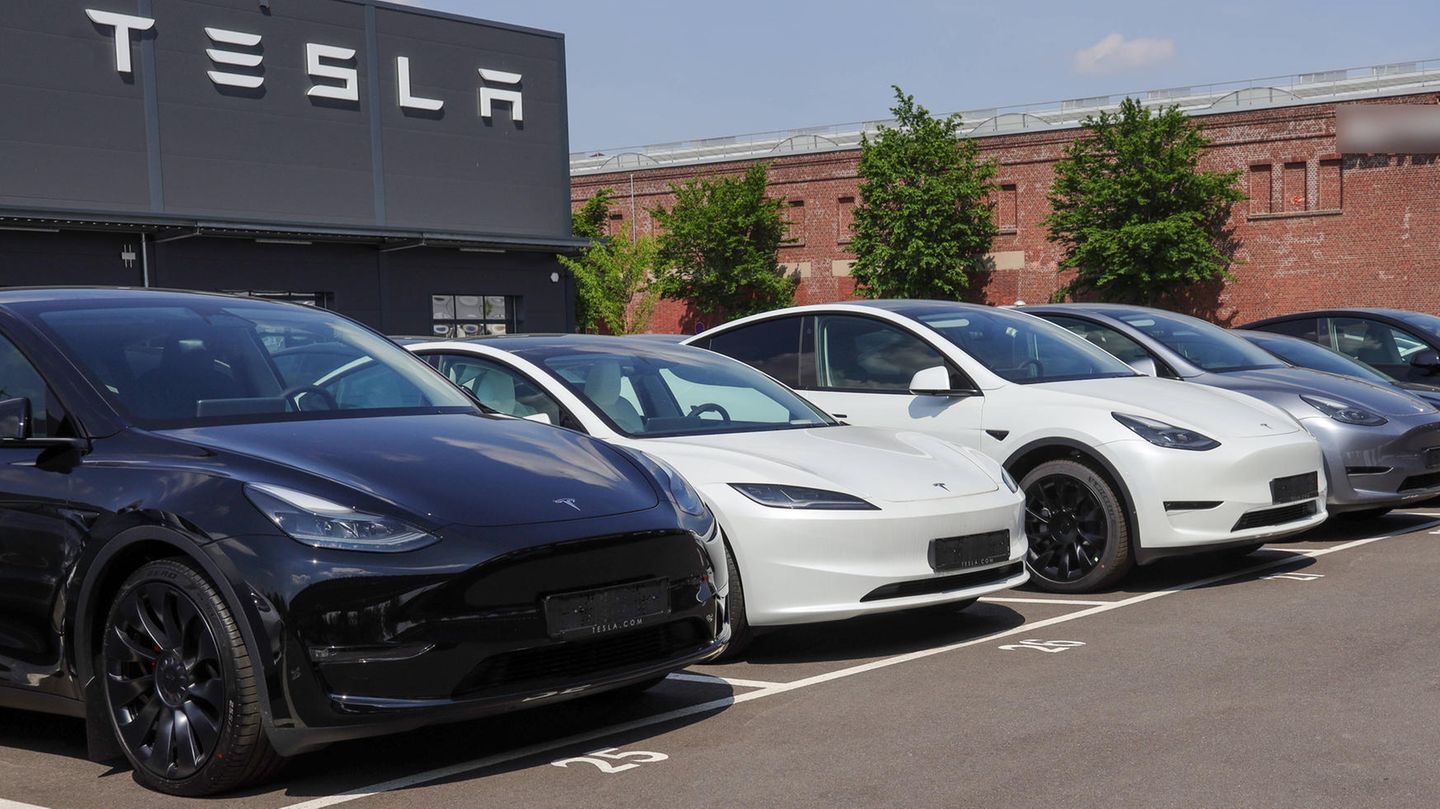According to analyses by the Chemnitz Automotive Institute, there are around 100,000 electric cars in stock in this country that are looking for a buyer. According to the experts, the current production figures cannot be maintained in this way.
The consequences of the e-car crisis in Germany are gradually becoming obvious. As a report by “” from the beginning of May – and related ones – show, unsold e-vehicles are piling up in this country. Tesla is just one example; elsewhere things may look tidier, but not necessarily better. As the “Chemnitz Automotive Institute” (CATI) shows in a , two industry records are currently facing each other: With 973,000 vehicles produced, never before have so many electric cars been manufactured in Germany as in 2023. But: At the same time, there have also never been so many unsold vehicles with flat tires sitting in storage areas and at dealers.
Record exports – and record stocks
CATI estimates the current number of unsold cars at 100,000. The reason there are not more is because of the huge export share. The experts report that around 80 percent of the vehicles produced in Germany are exported. This is the only way to achieve the so-called “decoupling of production and domestic demand,” they say. However, the economist and co-founder of the institute, Prof. Dr. Werner Olle, explained: “The decoupling of production and domestic demand has clear limits in the medium term. The export valve cannot heal all wounds.”
New models
Cheaper electricity: These affordable electric cars will soon be on the market
In addition, Germany imported around 446,000 cars last year – 29 percent of which came from China. New registrations of purely electric cars, on the other hand, amounted to 524,200 vehicles. If you add the non-exported share of 187,000 domestically produced vehicles, the difference is 108,800 vehicles.
The prices for electric cars must go down
Since the German federal government abruptly ended the financially extremely interesting subsidies for electric cars in December, an increase in new registrations is unlikely to be expected in 2024. Some manufacturers, such as Mercedes-Benz, have already scaled back their ambitious plans to switch to electric drives and announced that they will significantly postpone the previously planned phase-out of combustion engines. This is a response to the ongoing demand for conventional drives, they say. According to the Federal Office, in 2023, 2.4 million combustion engines were built in Germany, more than twice as many as electric cars – a ratio that is unlikely to change for the time being, given the figures.
It is obvious how the German car industry can reduce the surplus of electric vehicles. Prices would have to come down – significantly. Only a few electric cars – regardless of their size – cost less than 25,000 euros. For most people, that is too expensive. The masses are waiting for much cheaper models where performance does not suffer too much for the price. Such cars, such as the VW ID.1, are planned, but are currently still a long way off.
The era of cheap electric cars is over
In conversation with the star However, Smart Germany CEO Wolfgang Ufer explained that these cheap cars are currently not feasible for technical reasons (read more here). The prices for the batteries, the drives and the other technology are putting a damper on cheap vehicles – especially when customers expect a certain level of performance and range that is currently simply not feasible for the desired price range.
At least there is good news for residents of the Tesla airfield in Neuhardenberg. As soon as the necessary permits are in place, Tesla wants to start building its own parking areas – this would at least put an end to the disruptive truck traffic in the villages.
Source: Stern
I’m a recent graduate of the University of Missouri with a degree in journalism. I started working as a news reporter for 24 Hours World about two years ago, and I’ve been writing articles ever since. My main focus is automotive news, but I’ve also written about politics, lifestyle, and entertainment.




